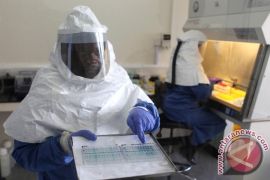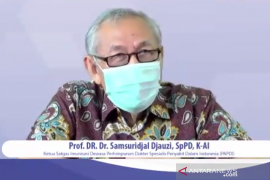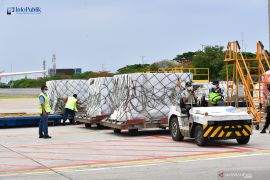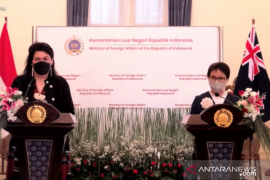... I discovered weird characteristics in the structure of disease-causing bacteria. The motive (behind these incidents) and their impacts are unclear...Surabaya, East Java (ANTARA News) - A professor of Airlangga University in Surabaya, East Java province, believes that bioterrorism is prevalent in Indonesia, which is clear from incidents that mark the spread of viruses and disease-causing microbes.
"As a researcher, I discovered weird characteristics in the structure of disease-causing bacteria. The motive (behind these incidents) and their impacts are unclear," Professor Dr DRH Chairul Anwar Nidom said here on Thursday.
Nidom is a researcher of avian influenza, MERS, Ebola, and vaccines at Airlangga University.
Bioterrorism needs to be prevented by the government in the wake of global and regional economic competition, Nidom remarked.
"Bioterrorism is different from the traditional forms of terrorist acts, which involve direct impacts such as explosions and casualties. Bioterrorism utilizes bacteria, viruses and other disease-causing microbes that have indirect impacts, but trigger economic downfall nevertheless," the professor explained.
There have been several incidents related to bioterrorism in Indonesia, such as the spread of bird flu, which was discovered in 2003 and continues to be prevalent in 2015, and the occurrence of swine flu in 2009. Both viruses have unnatural structures.
"The avian influenza virus that attacked ducks in 2012 has a different structure as compared to the one discovered during the previous outbreak. It is rather similar to the virus found in China. It is weird that it was found in Indonesia, except in places where there were duck imports from China," Nidom observed.
The researcher also discovered a virus similar to the Ebola virus in Orangutan in 2012. "Strangely, the Ebola virus we discovered is similar to the one in Africa but different from the one found in the Philippines," the researcher noted.
The university will establish an Anti-Bioterrorism Research Center to study the incidents. "We have an array of equipment, including a bio-defense or a research facility that can modify a negative virus into a positive one," the professor affirmed.
Editor: Ade P Marboen
Copyright © ANTARA 2015







